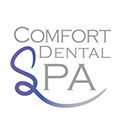If visiting your dentist gives you anxiety, you’re not alone. Many patients fear undergoing dental procedures, sometimes even dental cleanings in severe cases. Don’t let it keep you from making your dentist’s appointment, though! There may be something that can help – sedation dentistry. Using medications to calm your nerves has become increasingly popular when it comes to dental procedures, especially when fear causes patients to forego necessary treatments. Also referred to as “sleep dentistry,” sedation dentistry induces an altered state of consciousness to completely relax you while sitting in your dentist’s chair.
Why Use Sedation?
Anxiety and fear aren’t the only reasons one may benefit from using sedation during a dental appointment. If you have overly sensitive teeth or a low pain threshold – your dentist may recommend using mild medications to minimize your discomfort. However, one of the main reasons patients opt for “sleep dentistry” is because it not only benefits them but your dentist as well. Oftentimes, with anxious patients, sitting still for extended periods of time is difficult. When sedated, the patient is able to sleep through the entire procedure – allowing your dentist to complete the treatment in one visit as opposed to several. This tends to save patients money even with the added cost of the medication since they’re only paying for one dentist visit!
Exploring The Medications
Depending on your individual situation, your dentist may recommend using several medications. Most of the time, patients feel at ease using the mild forms of sedation, but for extensive procedures, you may benefit from using a stronger concentration or stronger medication altogether.
Nitrous Oxide – Commonly referred to as “laughing gas,” nitrous oxide is one of the most used forms of sedation. The concentration can continuously be adjusted by your dentist, but the gas wears off very quickly. In fact, gas is the only form of sedation where you may be able to drive yourself home following your dental procedure.
Oral Medication – In some circumstances, your dentist may prescribe an oral medication for you to take before your dentist appointment. Oftentimes, this medication can make you drowsy enough to sleep through your treatment, but don’t worry – you’ll still be easy to wake.
For moderate to severe cases, your dentist can discuss different options like IV sedation or general anesthesia. Don’t wait to make your appointments because of your anxiety – discuss sedation dentistry with your dentist!

 This Summer
This Summer  $1,000 OFF Braces!
$1,000 OFF Braces!